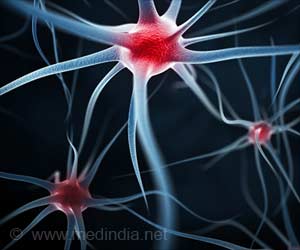Standard drug treatment for Parkinson’s disease may induce motor complications thus reducing the effectiveness of restoring mobility.

‘Drugs that can reduce the rate of unstable responses to dopamine that cause abnormal involuntary movements in Parkinson’s patients have been found.’





Research team led by Stella Papa, MD, showed striatal projection neurons (SPN), which become hyperactive when nearby dopamine-producing neurons degenerate, could be controlled by certain drugs, reducing the rate of unstable responses to dopamine that cause dyskinesias. The striatum is part of the basal ganglia, the region of the brain most visibly impacted by Parkinson's. "Our focus was to prove SPN hyperactivity plays an important role and that glutamate signals are a major contributor," says Papa, associate professor of neurology at Emory University School of Medicine and a Yerkes scientist. "Knowing this mechanism may serve to develop different therapeutic strategies: pharmacological treatments or gene therapies."
The first author of the paper is former Yerkes researcher Arun Singh, PhD, now at University of Iowa. Laboratories in Emory's Department of Pharmacology made significant contributions to this work, especially the group Stephen Traynelis, PhD, leads; Dr. Traynelis had a key role in the study. Annalisa Scimemi at SUNY Albany also contributed to the study.
The research team tested whether the drug LY235959 (an NMDA receptor antagonist) or NBQX (an AMPA receptor antagonist) could control SPN hyperactivity and dyskinesia symptoms in Parkinson's model monkeys. The nonhuman primate model of Parkinson's uses the neurotoxin MPTP, which destroys dopamine-producing neurons.
Both drugs interfere with signals by the neurotransmitter glutamate. In the presence of levodopa, the drugs had calming effects both in single cell SPN recordings and when the drugs were infused into monkeys' basal ganglia. After lowering the SPN firing frequency by 50 percent, the response to dopamine stabilizes and abnormal movements are markedly diminished, Papa says.
Advertisement










